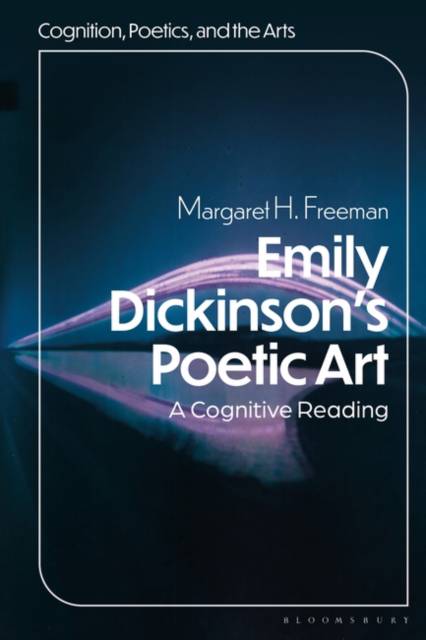
Bedankt voor het vertrouwen het afgelopen jaar! Om jou te bedanken bieden we GRATIS verzending (in België) aan op alles gedurende de hele maand januari.
- Afhalen na 1 uur in een winkel met voorraad
- In januari gratis thuislevering in België
- Ruim aanbod met 7 miljoen producten
Bedankt voor het vertrouwen het afgelopen jaar! Om jou te bedanken bieden we GRATIS verzending (in België) aan op alles gedurende de hele maand januari.
- Afhalen na 1 uur in een winkel met voorraad
- In januari gratis thuislevering in België
- Ruim aanbod met 7 miljoen producten
Zoeken
€ 203,95
+ 407 punten
Uitvoering
Omschrijving
Emily Dickinson's Poetic Artis both an exciting work of literary criticism on a central figure in American literature as well as an invitation for students and researchers to engage with cognitive literary studies.
Emily Dickinson's poetry can be challenging and difficult. It paradoxically gives readers a feeling of closeness and intimacy while being puzzling and obscure. Critical interpretations of Dickinson's poems tend to focus on what they mean rather than on what kind of experience they create. A cognitive approach to literary criticism, based on recent cognitive research, helps readers experience and understand the hows and whys of what a poem is saying and doing. These include cognitive linguistic analysis, versification, prosody, cognitive metaphor, schema, blending, and iconicity, all of which explain the sensory, motor, and emotive processes that motivate Dickinson's conceptualizations.
By experiencing Dickinson's poetry from a cognitive perspective, readers are able to better understand why we feel so close to the poet and why her poetry endures. Emily Dickinson's Poetic Art: A Cognitive Reading is an important contribution to the study of a major American poet as well as to the vibrant field of cognitive literary studies.
Emily Dickinson's poetry can be challenging and difficult. It paradoxically gives readers a feeling of closeness and intimacy while being puzzling and obscure. Critical interpretations of Dickinson's poems tend to focus on what they mean rather than on what kind of experience they create. A cognitive approach to literary criticism, based on recent cognitive research, helps readers experience and understand the hows and whys of what a poem is saying and doing. These include cognitive linguistic analysis, versification, prosody, cognitive metaphor, schema, blending, and iconicity, all of which explain the sensory, motor, and emotive processes that motivate Dickinson's conceptualizations.
By experiencing Dickinson's poetry from a cognitive perspective, readers are able to better understand why we feel so close to the poet and why her poetry endures. Emily Dickinson's Poetic Art: A Cognitive Reading is an important contribution to the study of a major American poet as well as to the vibrant field of cognitive literary studies.
Specificaties
Betrokkenen
- Auteur(s):
- Uitgeverij:
Inhoud
- Aantal bladzijden:
- 256
- Taal:
- Engels
- Reeks:
Eigenschappen
- Productcode (EAN):
- 9781501398193
- Verschijningsdatum:
- 1/06/2023
- Uitvoering:
- Hardcover
- Formaat:
- Genaaid
- Afmetingen:
- 152 mm x 229 mm
- Gewicht:
- 508 g

Alleen bij Standaard Boekhandel
+ 407 punten op je klantenkaart van Standaard Boekhandel
Beoordelingen
We publiceren alleen reviews die voldoen aan de voorwaarden voor reviews. Bekijk onze voorwaarden voor reviews.









